Fantastic Voyage (The Art of Translation)
Exploring the building blocks of the body – beautiful images of life at a cellular level.
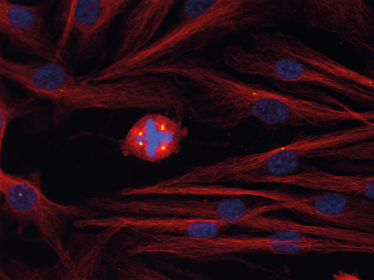
Genesis
A human epithelial cell (DNA in blue) with an increased number of centrosomes (green), lurks amongst normal cells. Centrosome amplification can lead to chromosomal instability and an abnormal number of chromosomes, which are hallmarks of cancer.
Credit: National Cancer Institute and University of Wisconsin Carbone Cancer Center
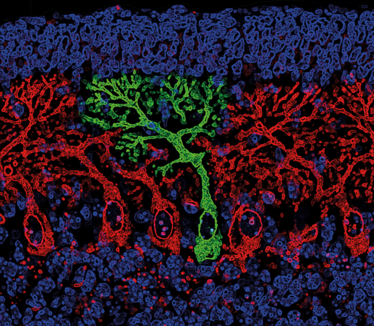
Tree of Life
Mouse cerebellum stained to reveal a Purkinje neuron (green), by researchers studying the expression of ALS-associated genes in the brain.
Credit: Andrew L. Bashford and Vasanta Subramanian, University of Bath
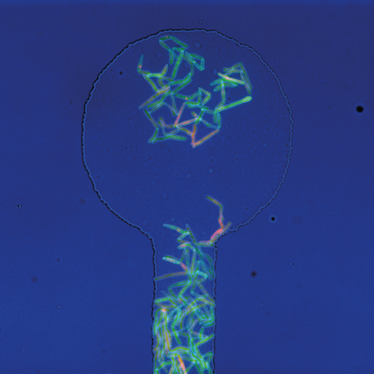
Microbes and Microfluidics
Mycobacteria growing in a microfluidic chamber. Individual mycobacteria respond differently to the antibiotic rifampicin, even if they are genetically identical.
Credit: Bree Aldridge, Tufts University
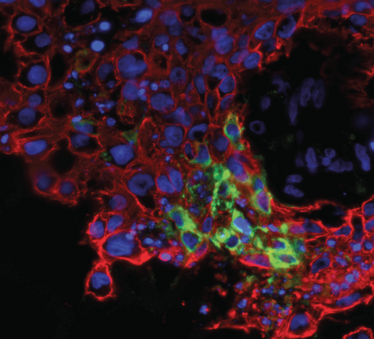
Mapping Zika’s Routes to the Fetus
Cytotrophoblasts (red) in the chorionic villi are stained green with antibodies to a non-structural Zika virus protein, indicating active replication of the virus. Blue highlights the cell nucleus. The researchers were able to identify two routes from mother to fetus (amniotic and placental) and found that the antibiotic duramycin blocked infection of cells involved in both.
Credit: Takako Tabata
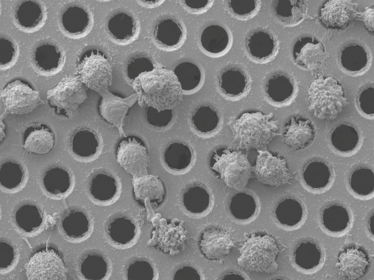
Cancer Clusters
Clusters of human endothelial cells captured using a custom-designed micro-device. By analyzing the captured cells, researchers at A*STAR have cast doubt on the 50-year-old theory that the clusters cause metastasis.
Credit: Min-Han Tan et al. / Institute of Bioengineering and Nanotechnology
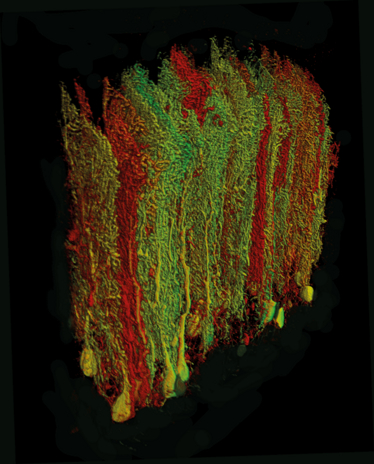
Dimensions
This 3D rendering from fluorescent images shows neuronal Purkinje cells, in part of a study exploring how they transmit data during sensorimotor coordination.
Credit: OIST
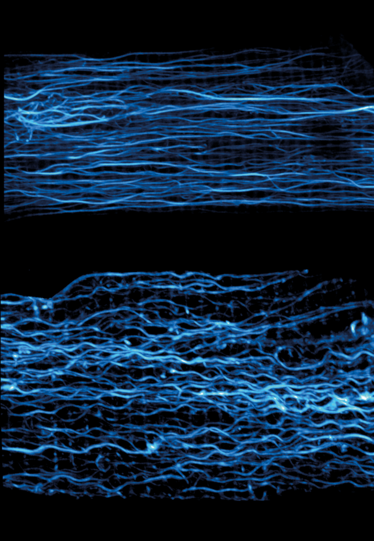
Be Still My Beating Heart
Microtubules in a cardiomyocyte at rest (top) and when compressed (bottom). The Prosser lab is gaining new insights into the mechanics of the process.
Credit: Ben Prosser lab, Perelman School of Medicine, University of Pennsylvania















